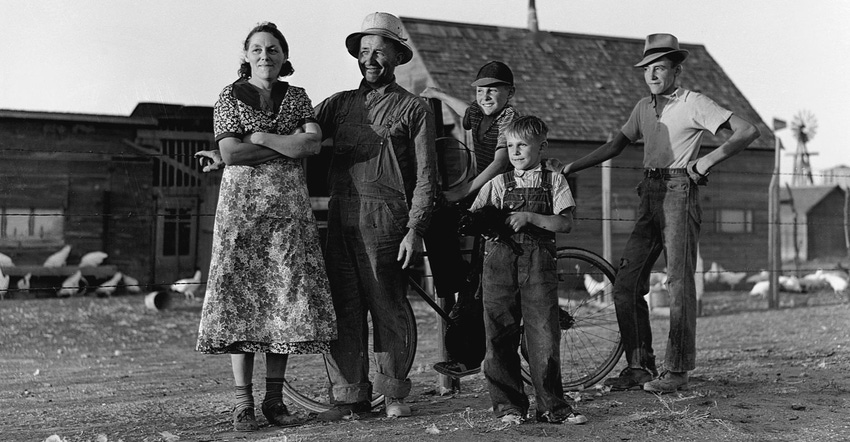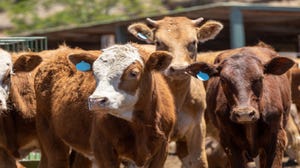One of the forgotten survival mechanisms our forbearers used was thankfulness. We need more of that.
October 30, 2019

Have you seen that picture of the man with the wrinkled, weathered face and gray hair saying, “Veterinary medicine isn’t stressful. I’m twenty-nine years old and feel just fine!”?
And it’s not like we have had anything stressful this year... Only a little apocalyptic flooding, washed out roads and bridges, abysmal cattle prices, a major packing plant burning down and a trade war, coupled with increasing student debt, tight product margins and the never-ending task of finding and keeping good employees.
Of course, for most of us who grew up on the farm, the solution to dealing with stress was your father telling you to “buck up, buttercup.” We admire our forefathers who dealt with stress like this or worse, back to the pioneers who settled this land. But what we don’t often hear about are the ones the stress got to. We tie suicide and substance abuse to veterinary medicine today, but a little historical research will show us this isn’t a new problem in cattle country. So, what separated those who survived from those who didn’t?
You can’t put it all down to luck, because some folks with the worst luck still kept their heads. When my great grandpa lost his farm in the 1930s after the hogs all died from cholera, he didn’t end up in a bottle or worse. Somewhere he found a mental toughness that allowed him to move forward.
"Mental toughness" is a way to phrase good mental health that is more palatable to our types. For analytical scientists with a cowboy/cowgirl bent that we cow docs have, sometimes we may tend to associate mental health with fluff. But there was no fluff to surviving the Great Depression—it required being mentally healthy in a way we would call being tough. Making that association can help us embrace and utilize the techniques necessary to good mental health.
Be grateful
A lot of these techniques won’t surprise us, they just require hard work on our part to adjust our outlook. An example is having a grateful disposition. We can recognize this in the mentally tough people we know. My great grandma lived through the Depression, losing a baby, losing a farm and barely making ends meet running a small business. But she was always so thankful to have the opportunity to talk to people who would visit, to have fresh chokecherries for jelly and for her family to live close by. In spite of the sadness, she thrived through thankfulness.
Current research validates this point. An article from the February 2006 issue of Behavior Research and Therapy detailed a study comparing war vets with PTSD and without PTSD. They found a key difference between the two was dispositional gratitude, with the non-PTSD group exhibiting this trait more frequently. Dispositional gratitude is not simply “counting your blessings,” but an attitude that looks for reasons to feel thankful in all situations. They found no difference between groups in daily gratitude, which would be more akin to “counting your blessings” when someone reminds you to.
Develop consistency
Cultivating dispositional gratitude if you do not exhibit it is doable, but it would require commitment and hard work. The same goes with another trait for mental health, which is developing consistency. This seems like a laughable idea in veterinary practice, with emergencies and client demands. But the fact it is so unpredictable requires us to create more consistency for the sake of mental health for ourselves and our employees.
Numerous studies attest to this, and our experience with mentally tough people agrees. Even with the farm and life pulling him in six different directions, grandpa always found time to go to church, eat supper with the family and to pray.
When we schedule, do we budget time for emergencies or do we just book the whole day and hope they don’t happen? Do we place time in each person’s schedule to sit and eat, or just work without eating? I’ll guarantee you that lame cow will be fine if she has to wait 30 minutes for the vet to have a bite to eat and a few minutes to rest. Clients would like to have us available every second of the day, but we have to recognize that as humans we require some consistency to maintain our sanity.
There is no doubt that stress in our profession is real and the effects of it can literally be grave. Hopefully next year will be better, but we know hard times will come again. If we want to ride them out like our tough forefathers, we need to utilize the same mental health skills they did. They may not have had a name for them, but they knew them and used them well. We should too.
About the Author(s)
You May Also Like





